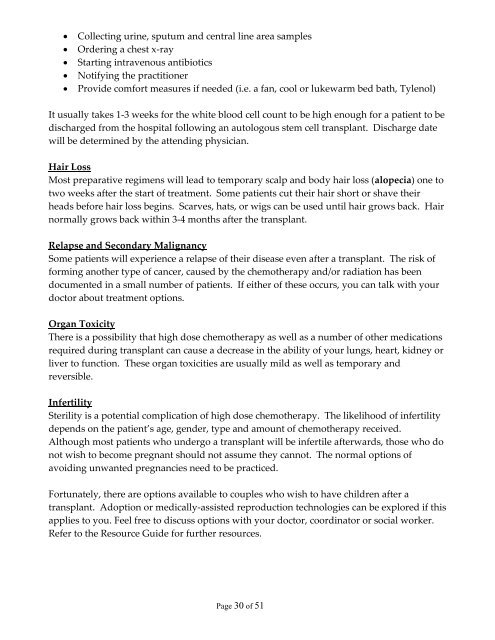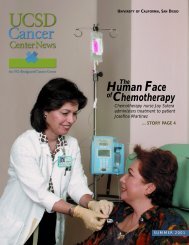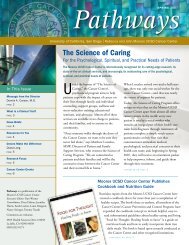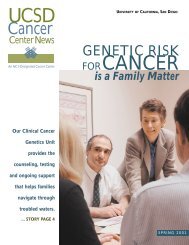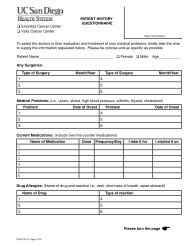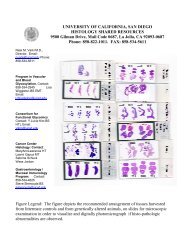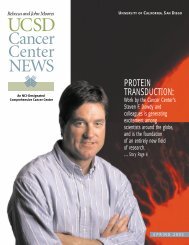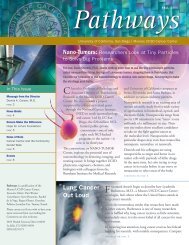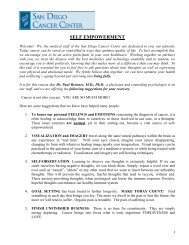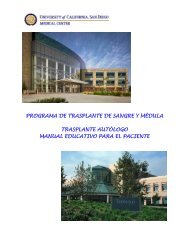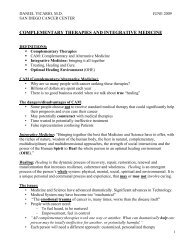Autologous Transplant Patient Education Manual - Moores Cancer ...
Autologous Transplant Patient Education Manual - Moores Cancer ...
Autologous Transplant Patient Education Manual - Moores Cancer ...
Create successful ePaper yourself
Turn your PDF publications into a flip-book with our unique Google optimized e-Paper software.
Collecting urine, sputum and central line area samples<br />
Ordering a chest x-ray<br />
Starting intravenous antibiotics<br />
Notifying the practitioner<br />
Provide comfort measures if needed (i.e. a fan, cool or lukewarm bed bath, Tylenol)<br />
It usually takes 1-3 weeks for the white blood cell count to be high enough for a patient to be<br />
discharged from the hospital following an autologous stem cell transplant. Discharge date<br />
will be determined by the attending physician.<br />
Hair Loss<br />
Most preparative regimens will lead to temporary scalp and body hair loss (alopecia) one to<br />
two weeks after the start of treatment. Some patients cut their hair short or shave their<br />
heads before hair loss begins. Scarves, hats, or wigs can be used until hair grows back. Hair<br />
normally grows back within 3-4 months after the transplant.<br />
Relapse and Secondary Malignancy<br />
Some patients will experience a relapse of their disease even after a transplant. The risk of<br />
forming another type of cancer, caused by the chemotherapy and/or radiation has been<br />
documented in a small number of patients. If either of these occurs, you can talk with your<br />
doctor about treatment options.<br />
Organ Toxicity<br />
There is a possibility that high dose chemotherapy as well as a number of other medications<br />
required during transplant can cause a decrease in the ability of your lungs, heart, kidney or<br />
liver to function. These organ toxicities are usually mild as well as temporary and<br />
reversible.<br />
Infertility<br />
Sterility is a potential complication of high dose chemotherapy. The likelihood of infertility<br />
depends on the patient’s age, gender, type and amount of chemotherapy received.<br />
Although most patients who undergo a transplant will be infertile afterwards, those who do<br />
not wish to become pregnant should not assume they cannot. The normal options of<br />
avoiding unwanted pregnancies need to be practiced.<br />
Fortunately, there are options available to couples who wish to have children after a<br />
transplant. Adoption or medically-assisted reproduction technologies can be explored if this<br />
applies to you. Feel free to discuss options with your doctor, coordinator or social worker.<br />
Refer to the Resource Guide for further resources.<br />
Page 30 of 51


